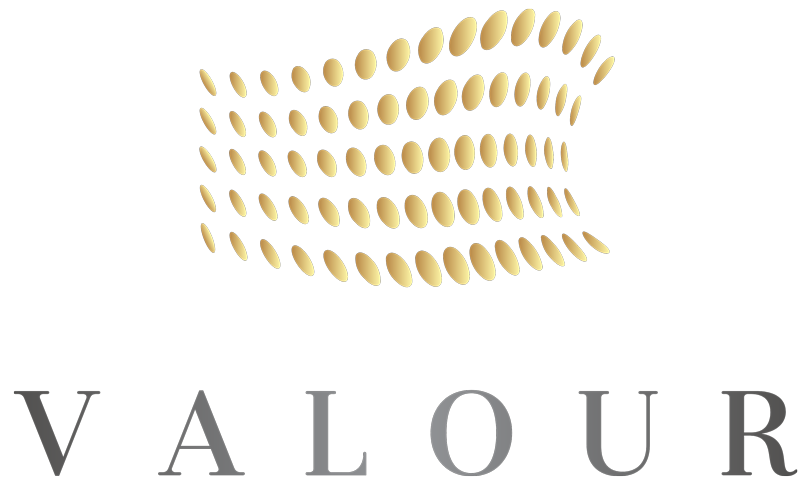In-depth Understanding of IB MYP: Creating Global Perspective Opportunities for Children
Introduction to IB MYP
MYP curriculum is designed by the International Baccalaureate (IB) for students aged 11-16. By assisting students in developing self-awareness and a sense of community responsibility, the curriculum builds on the development goals (IB Learner Profiles) and learning approaches (Approaches to Learning) emphasized in the Primary Years Programme (PYP), which is the IB’s elementary school curriculum. Building upon the foundation of knowledge, skills, and learning attitudes from the primary program, the MYP curriculum aims to help students establish connections between knowledge and the real world.
The Advantages of IB MYP
Enrolling in the MYP curriculum system offers several advantages, including:
- International Education:
MYP curriculum emphasizes international understanding and cultural sensitivity, helping students become globally-minded citizens. - Integrated Learning:
MYP adopts interdisciplinary learning, assisting students in connecting knowledge from different subjects and fostering interdisciplinary thinking. - Personal Development:
MYP focuses on students’ personal development, helping them build self-awareness, community engagement, and a sense of responsibility, nurturing comprehensive personality traits. - Learning Approaches:
MYP emphasizes learning approaches such as critical thinking, problem-solving, research skills, and collaboration, laying a solid foundation for students’ academic and career development. - Diverse Assessment:
MYP employs diverse assessment methods, including oral presentations, research projects, written exams, experiments, etc., allowing students to showcase their diverse talents.
IB MYP Curriculum
Language and Literature
Language Acquisition
Individuals and Societies
Mathematics
Design
Arts
Sciences
Physical and Health Education
IB MYP requires that each subject area receives at least 50 hours of instructional time each year. In the fourth and fifth years, students have the flexibility to choose six subjects from the eight available areas, allowing schools to cater to their specific cultural contexts and individual student needs. The MYP curriculum serves as a holistic framework without prescribed subject content, enabling schools to design their teaching material based on their unique circumstances and student requirements.
4. IB MYP Assessment
School-Based Assessment (SBA)
In MYP places a strong emphasis on internally designed assignments and exams. Teachers within the school need to possess the necessary skills to assess students’ learning achievements. These assignments are rigorous and employ various assessment strategies. Additionally, MYP teachers develop corresponding grading criteria based on different subjects.
There are two main kinds of school-based assessment:
- Formative Assessment:
- Purpose:
To provide ongoing feedback for both teachers and students during the learning process, facilitating the identification of difficulties and adjustment of teaching strategies. - Impact:
Since formative assessment does not contribute to the final grade calculation, its impact on academic performance is relatively minor. - Frequency:
Depends on teacher preferences and can occur daily or weekly. - Forms:
Mostly informal and diverse, including activities such as quizzes, reports, discussions, observations, or assignments.
- Purpose:
- Summative Assessment:
- Purpose:
Used to assess and summarize students’ learning achievements and overall grades. - Impact:
Typically has a decisive impact on the final grades for the semester. - Frequency:
Usually conducted at the end of a learning cycle or unit. - Forms:
More structured and standardized compared to formative assessment, often taking the form of formal exams, projects, or papers.
- Purpose:
External Assessment
Personal Project
In the final year of the curriculum, each MYP student is required to independently complete a Personal Project, subject to external assessment by the IB Official. This project serves as a culminating evaluation, expecting students to produce a creatively rich work within a specified timeframe, showcasing their ability to work independently. Students have the freedom to choose project topics, exploring areas of personal interest and dedicating time to research. The Personal Project not only provides students with an integrative learning opportunity, guiding them to develop life skills beyond the curriculum but also aids in building confidence and principles, fostering a disposition for lifelong learning.
Key elements of tfhe Personal Project include:
ideas, criteria, progress, challenges, plans, research, possible solutions, and progress reports.
-
- Product or Outcome: This can be a tangible or intangible result that enables students to demonstrate their anticipated goals.
- Final Report: In addition to creating a product/outcome, students are required to write a report. In this report, students describe their creative process and reflect on its impact on themselves or their learning. Writing this report involves referencing official evaluation criteria and structural guidelines.
To ensure global consistency in grading standards, the report is initially assessed by the student’s mentor before being submitted to the IB official organization for final confirmation of grades.
Optional External Examinations (eAssessment)
Since the MYP was initially designed to prepare students for the IBDP high school program without formal public examinations, concerns have arisen among parents in recent years regarding the potential impact on their children’s opportunities for further education or transfer without publicly available exam scores. Consequently, the International Baccalaureate Organization introduced MYP eAssessment in 2016, providing students with an internationally recognized certification opportunity.
Schools can register/apply for participation in external assessments through IB. Successfully passing these exams provides students with a formal internationally recognized certificate.
After completing the registration process, students can choose to participate in either of the following two types of examinations:
ePortfolios- Used to showcase their knowledge and skills in the following subjects:
Language acquisition
*Student achievements are primarily assessed by in-house teachers. IB examiners evaluate electronic portfolio samples to align results with consistent international standards*
On-screen Examinations- Each exam lasts for 1 hour and 45 minutes to 2 hours. Subjects offering online assessments include:
The International Baccalaureate Middle Years Programme (IB MYP) School in Taiwan
| SCHOOL NAME | LANGUAGE PROVIDED | |
|---|---|---|
| 北部 | 康橋國際學校秀岡校區 Kang Chiao International School (Xiugang Campus) |
CHI/ENG/OTHERS |
| 台北奎山中學 Taipei Kuei Shan School |
ENG/CHI | |
| 臺北市濱江實驗國民中學 Taipei Municipal Binjiang Experimental Junior High School |
CHI/ENG/OTHERS | |
| 中部 | 台中明道國際學校 Mingdao High School |
CHI/ENG/OTHERS |
| 南部 | 高雄美國學校 Kaohsiung American School |
ENG |
| 高雄義大國際學校 I-Shou International School |
CHI/ENG/OTHERS |
Who is Suitable for the IB MYP Programme?
1. English Proficiency
Most IB schools conduct classes and assessments in English (except for Chinese courses). Therefore, students need sufficient English proficiency to understand course materials, participate in class discussions, and complete academic assignments. Regular tests and assessments also require students to fluently express ideas, analyze texts, and engage in academic writing. Having a strong foundation in English helps students accurately convey their thoughts and achieve good grades in assessments.
2. Self-directed Learning
IB MYP curriculum emphasizes holistic learning and aims to foster students’ comprehensive development. It not only focuses on subject content but also encourages students to explore knowledge across disciplines. Therefore, the IB curriculum places a strong emphasis on students’ ability for self-directed learning. In various subject areas, assignments often require students to analyze class content, pose questions, solve problems, and form personal viewpoints. Simultaneously, the program pursues deep learning, requiring students not only to understand surface-level knowledge but also to comprehend deeper meanings. Hence, students with strong self-directed learning abilities are more likely to reap knowledge from classroom learning, engage in in-depth discussions and reflections outside of class, and become well-rounded learners.
3. Going further to study IBDP
One of the main objectives of the MYP curriculum is to better connect students to the IB Diploma Programme (IBDP), a high school curriculum designed by IB. Therefore, completing the MYP programme is beneficial for students in adapting to the IBDP curriculum. Through MYP learning, students can establish a solid learning foundation, preparing them well for the more challenging IBDP curriculum. This coherence helps students transition more effectively to the academic environment of high school. Additionally, the MYP emphasizes interdisciplinary exploration, critical thinking, and independent research, which are crucial skills in the IBDP. By cultivating these abilities through the MYP curriculum, students can not only enhance their academic performance in the IBDP but also improve their university application outcomes.

